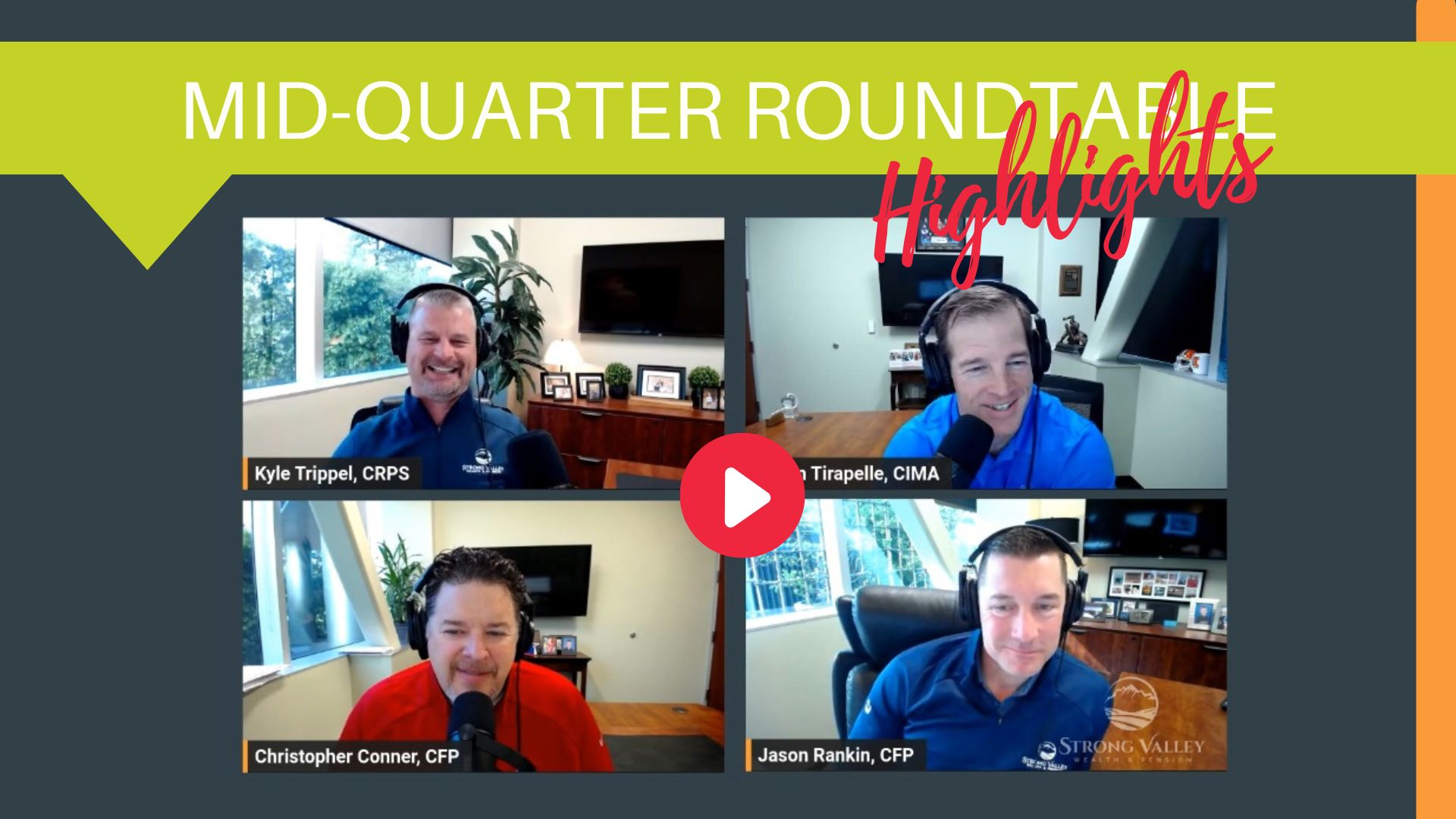You are now leaving the Strong Valley Wealth & Pension, LLC ("Strong Valley") website. By clicking on the "Schwab Alliance Access" link below you will be entering the Charles Schwab & Co., Inc. (“Schwab”) Website. Schwab is a registered broker-dealer, and is not affiliated with Strong Valley or any advisor(s) whose name(s) appears on this Website. Strong Valley is/are independently owned and operated. Schwab neither endorses nor recommends Strong Valley. Regardless of any referral or recommendation, Schwab does not endorse or recommend the investment strategy of any advisor. Schwab has agreements with Strong Valley under which Schwab provides Strong Valley with services related to your account. Schwab does not review the Strong Valley website(s), and makes no representation regarding the content of the Website(s). The information contained in the Strong Valley website should not be considered to be either a recommendation by Schwab or a solicitation of any offer to purchase or sell any securities.

#wellnessmonth Here are 8 suggestions that can get you going on the path to financial wellness. Not only are these simple daily actions that can have a big impact on your health, they also incorporate self-care tips that improve how wealth and income affect our emotional and physical well-being.

August is National Wellness Month, an entire month where we can focus on self-care, managing stress and promoting healthy routines on our way to a lifetime of wellness. And while we all intuitively know that simple, daily actions can have a big impact on our health, sometimes a few reminders can prove helpful.
For example, we know that we should:
But one of the most important financial journeys we can take is the path to financial wellness. Building financial security and independence, while certainly important, makes up only one slice of the whole financial wellness pie. Financial wellness also incorporates the ways that wealth and income affect our emotional and physical well-being.
The journey to financial wellness is far different than the path to becoming rich. But achieving financial wellness cannot be done in a vacuum, as it requires developing a degree of emotional and physical wellness as well.
Searching for one inherently will expand to a search for all three. And we should remember that the journey does not really have a final destination – and it’s one that too few people choose to make.
If you are considering a journey to financial wellness, here are a few suggestions to help:
1. Remember, it’s your journey.
It doesn't work to follow the path to financial wellness because a spouse, parent, friend or financial planner recommends it. If your motivation is a should or an ought, you might as well save yourself a lot of frustration and pain by stopping before the journey starts.
2. Don’t attempt to guilt, shame or manipulate anyone else to come along with you on the journey.
We can’t find financial wellness for anyone else but ourselves. We certainly can join with others for mutual support and learning along the way, but all those on the path need to be there for themselves regardless of whether others are on it.
3. Be prepared for the naysayers.
Not everyone in your life is going to support your quest for financial wellness. Many will try to convince to stop before you start or to turn back once you’ve begun. Often, the closer a person is to you and the more dependent they are on your financial choices, the more threatening your journey may be to them and the more they will resist you changing.
4. Lower your expectations of how quickly your attitudes and behaviors around money and finances will change.
Chances are it has taken you a lifetime to get to where you are with your relationship with money. Unlike the journey that Ebenezer Scrooge took to financial wellness, your relationship won’t be miraculously transformed overnight.
5. In the early stages of your journey, resist the urge to substitute getting more practical and logical information about money and finances instead of looking at the emotions and feelings you have around money.
Most of the journey to financial wellness is not about the money. It’s about the thoughts, beliefs and emotions you have about money and wealth.
6. Find one or more trusted guides to help you along the journey.
Seek out those who are traveling the path ahead of you and who appear to practice at least some of the financial wellness you want. Learn from their missteps. Benefit from their experience and wisdom.
7. Open yourself to new awareness and knowledge.
Be prepared to let go of your most deeply held “truths” about money. The more stubbornly we cling to strong beliefs about how systems work, or people function around money, the more likely that those beliefs are not serving us well.
8. Be gentle with yourself when you get off the main path and need to retrace your steps.
Everyone on the journey to financial wellness takes wrong turns. Mistakes and dead ends are inevitable and are not failures. They are opportunities to learn, to make course corrections and to continue your journey.
It is said that small, daily acts of self-care can lead to a lifetime of wellness. The same is true as you seek financial wellness.



